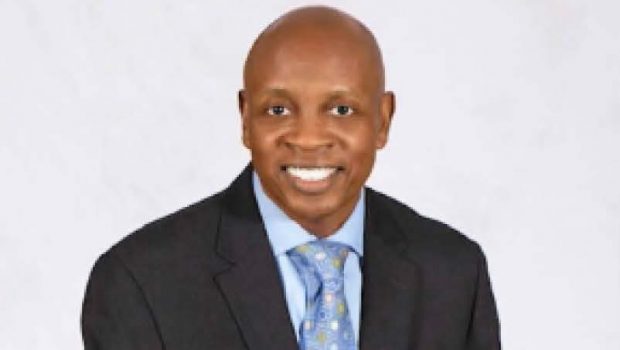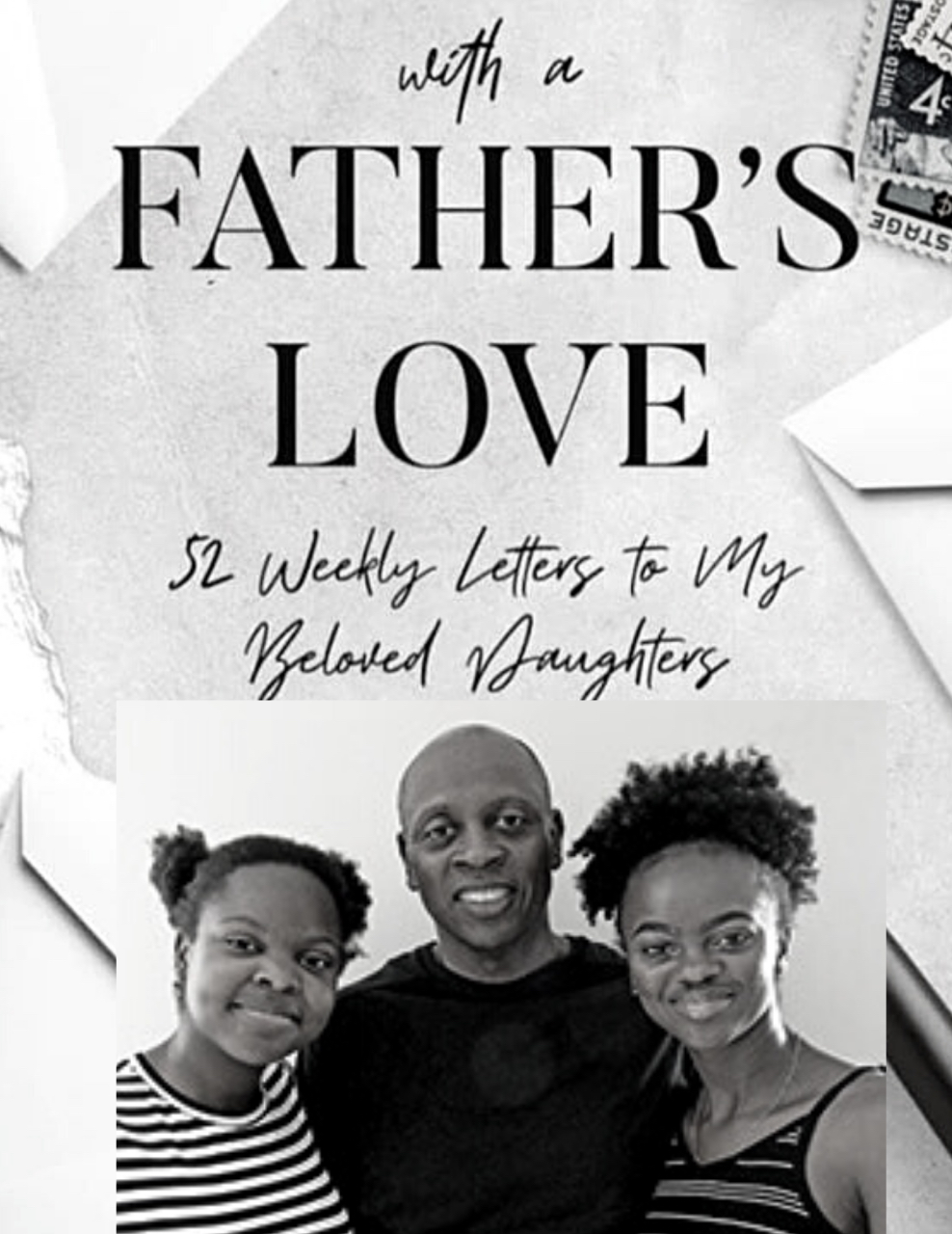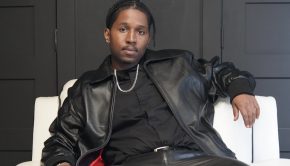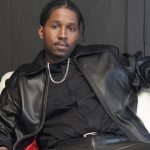Dr. Edmund H. Moore Talks the 25th Anniversary of the Million Man March and His Book ‘With a Father’s Love’
There is an inaccurate perception, mostly from outside the Black community, that Black men as a general rule are not active caring parents or concerned with the traditional family unit and somehow are mostly absent. While those WITHIN the community know this to be untrue, still it is heartwarming when we get the opportunity to shine the light on one of those fathers who have stood their ground and fought to maintain their relationship with their children despite challenging circumstances.
Dr. Edmund H. Moore resides in Dayton, Ohio. Dr. Moore is employed by the U.S. Air Force as an engineer. He is active in his community through his involvement with the Omega Baptist Church. He is a devoted member of Omega Psi Phi Fraternity and is an active member of the alumni chapter of FAMU, and many other affiliations. When he is not spending time with his daughters, he enjoys playing golf, reading, and helping others.
A while back Dr. Moore found himself at a low point in his life: his wife of 15 years unexpectedly filed for a divorce. Afraid he would lose custody of his two daughters, he penned heartfelt letters to them for 52 weeks. He wanted his daughters to know he loved them no matter the outcome. The result of this labor of love is an amazing book entitled With A Father’s Love, this story is incredible and the letters are inspiring and beautifully written.
The Hype Magazine got Dr. Moore to weigh in on a few things
From the outside looking in, who is Dr. Edmund H. Moore?
I am the son of educators, with an older brother, and we all are graduates of Historically Black Colleges and Universities (HBCUs). We all have given back to our communities civically, socially and spiritually. My late parents placed me in an incubator of community that educated me well. Between my brother and me, we all have daughters. I am a reader, continuous learner and thinker. Professionally, I am an engineer. I have volunteered in the community by serving my church (Trustee and teach Sunday school), serve on Boards and committees that address education, mentoring, economic development, brain health, drug prevention, finances, endowments and on a private business sector one. To aid in these endeavors, I have secured a degree in Management as well, along with a lot of boutique training. I am the father to a couple of daughters and in a few fraternities.
You were a participant in the Million Man March on Washington, DC on October 16, 1995, for you what was the significance of that march and the greatest takeaway for you?
The two greatest takeaways from the 1995 Million Man March (MMM) was the pledge that Min. Louis Farrakhan led the 800,000 to 1 Million Black men, the variety of speakers and the fact that there was absolutely no violence. The no violence burst a major stereotype about Black men being violent. I took that MMM pledge and have done everything in the pledge except for directly engaging in international trade. Recently, I shared the pledge with my daughters. They agreed that everything in the pledge was relevant today. My response to them was that Technology was not addressed. But, who could have projected 25 years ago the effect of technology on our society as manifested in the Internet, Social Media, Biotechnology, Robotics, Artificial Intelligence, and other technological advances? While many of the speakers that day have passed, I remember a few beyond Min. Farrakhan: Poet Maya Angelou, D.C. Mayor Marion Barry and his wife, Dr. Betty Shabazz, Rosa Parks, Dorothy Heights, Dr. Cornell West, Rev. Joseph Lowery, Rev. Benjamin Chavis Jr., Dr. Niam Akbar, Rev. Frederick Haynes III, Martin Luther King III, and many others. Many of these Civil Rights icons have passed. Yet, the MMM pledge is still relevant with a modification to include the role of technology.
Here we are at the 25th anniversary of the march and still, Black men need to fight against the stereotype that they are not involved in community or family, how do you address that issue?
Now, 25 years after the 1995 Million Man March (MMM), Black men are still being productive in their communities (civically, politically, socially, economically, mentally, spiritually and more). The bulk of the Black men that I know, both young and more seasoned, care for and support their families and communities. Even to combat a stereotype about Black men not being patriotic, the first to die in the Revolutionary War was a free-man named Crispus Attucks. A recent study has even shown that Black men are more engaged with their children than men of any other race. The media largely portrays how Black men are portrayed in that they rarely cover positive stories, yet they rush to cover the negative stories.
Personally, you’ve pushed back on the stereotype that Black men don’t care about their family with your book “With a Father’s Love”. Tell us about that project and why you found it necessary.
I don’t view my book, With a Father’s Love: 52 Weekly Letters to my Beloved Daughters as a project. Out of love for my daughters, I wrote the letters to them over 52 weeks during the midst of a difficult divorce where I feared that I may lose custody of my children. My goal was to keep my feelings toward my former spouse separate from these letters, as the letters were written to my daughters to convey my love toward them. The letters were formatted such that my daughters could receive a life lesson, a reflection from me, and a nugget about their father. I selfishly wrote the book just for them as a way of knowing who I was. Only after encouragement from friends did I produce a version for general consumption (i.e., it was primarily intended for step-daughters and daughters without fathers). Little did I realize that the audience would be much broader than that initial audience.
How fulfilling was penning the letters to your daughters that the book is based on?
It was a joy and a gift of love to pen these letters to my daughters. What has truly surprised and humbled me is how men and women have received the letters. Several fathers have revealed to me that the letters express their feelings toward their daughters, and they feel ownership in the letters. Likewise, some women have revealed that they have actually learned something from the letters that they did not know. Some of the father’s daughters have indicated that the letters were not written to them. However, once their father’s revealed how they felt the letters conveyed their feeling to their daughters, they in turn received the letters and in many cases it strengthened the father-daughter relationship. That was a surprise to me. BTW, some young men have asked where are my letters.
What was most difficult for you in creating these letters?
I really experienced no significant difficulties in writing these letters. My two challenges was finding 52 topics to write about, and second, making the letters readable to eight (8) and 13-year old daughters. Due to my daughter’s ages, I never addressed the dating topic.
Thank you for your service to our country. Sadly, Black men and women serve but that service does not necessarily change what seems to be a general negative outlook on them…how do you reconcile continuing to serve in the face of that reality?
When you mention service to country, I presume that you are talking about my employment with the U.S. Air Force as a civilian. Although I have never served in the military, we are all viewed as Airman. I have never received any negative feedback for my service as a civilian employee for the U.S. Air Force. I am serving all American and my compensation comes from all of the tax payers of our country. What American society in general misses is that Black men have patriotically served in all wars that our country has fought, including a Black man being the first to die in the Revolutionary War, i.e., a free-man named Crispus Attucks. We remember the movie Glory that portrays the service of Black men in the American Civil War. We know about the Tuskegee Airmen, However, like the Church, the military is a microcosm of America. Those in the military are mostly shielded from what is really going on in the off-base communities around them. The civilians have a better understanding of what is going on in society. Yet, if one does not visit various communities, one has an incomplete understanding of what is going on in the country as a whole. One has effectively self-isolated themselves and is open to misinformation.
What is your take on the state of the Black man in America at this point?
My take on the Black Man in America is that we are full of promise. If the shackles of systemic racism and prejudice were removed, we would start to strive even more. America would be the better for it. All that Black men (and women) ask for is a level playing field and some corrective actions from the past hindrances. The Bible refers to it as repentance and restoration. Sincere regret and remorse, and turning toward doing what is right, is incomplete without restoration. Black men and their families have suffered from gaps in income, wealth accumulation, home ownership, education, higher rates of incarceration and employment. What is the redress for income inequality, redlining, environmental racism, credit discrimination, employment inequality, incarceration, educational disparities, and the like? That is the conversation, followed by restorative public policy that needs to be accomplished for restoration of Black mean and their families toward true equality. That will not happen overnight.
How can we get over the hump?
Use the scholarship of people like Kwanzaa Kunjufi and others who wrote that we need to engage our young Black men (children) by the 4th or 5th grade. That addresses our current young ones. Yet, many claim that our current generations of Black men are a lost cause; I disagree. Those Black men that have made it need to reach back into their community to help uplift our future generations. It can be with funding others to do the work, volunteering as mentors or life coaches to our youth, and by other means. Even our college age to older young men need coaching from more seasoned men—seasoned based on experience vs. age. For example, one Board that I am on is Parity Inc., based in Dayton, Ohio. We are seeking to help build up the Black community in Dayton Ohio through a variety of programs. We are currently undergoing strategic planning to map our way forward to better service the community.
We are facing one of the most important elections in the history of our country, how do you see this particular election affecting people of color, Black men in particular?
As far as the 3 November elections are concerned, I cannot discuss partisan matters due to the Hatch Act. I will say that it is our civic duty to vote. With early voting, we have no excuse for not all voting before 3 November. Get rid of those outdated ideas that one will vote in person on 3 November, even in the midst of a deadly pandemic. It makes no sense. As far as how this election will affect people of color, specifically Black men, I recommend that you talk to Black men in affluent, middle class and poor communities to get a better sense of how our community is doing in the country. Don’t base your ideas solely off of social medial and on just those around you. Be wary of false and misleading information conveyed on social media and other platforms. Go online and read the platforms for the candidates and about the Levy’s and other issues on the ballot. Vote for everything on 3 November from the President, to Senators, to House of Representative members, to state representatives, to judges, to school boards, to sheriffs, to county engineers, to Coroners, to Attorney Generals, and to everything else that affects your community. Educate yourself on the issues and vote for people that have your interest, and the entire community’s interest in their platform. Look at the candidates’ morals and track record as well. Then make an informed decision when you vote—we all have one vote no matter if we are unemployed or are a Billionaire. Don’t complain if you fail to vote—you voted for the winner by default.
Final thoughts?
First, check out my book With a Father’s Love: 52 Weekly Letters to my Beloved Daughters at edmundhmoore.com where my social media feeds (FB, Instagram and Twitter) can be accessed and the book purchased through Amazon, Barnes and Noble, and Kindle. I have a blog at that site also.
I am putting out a blog titled “Is the pledge from the 1995 Million Man March relevant in 2020?” BTW, my daughters believe that the pledge is still relevant. With this being sent to “The Hype Magazine,” I find that a portion of the pledge may be relevant to artist in that the pledge reads “I, say your name, will never again use the B word to describe any female, but particularly my own Black sister.” As the son of a mother, a former husband to the mother of my children and the father of daughters— I find this is an item that our community has the ability to uphold personally and in our consumption of entertainment and other media. We, as a community, should demonstrate respect for all women. Our women are the womb that births us all—let’s strive to protect them.
Tweet





































